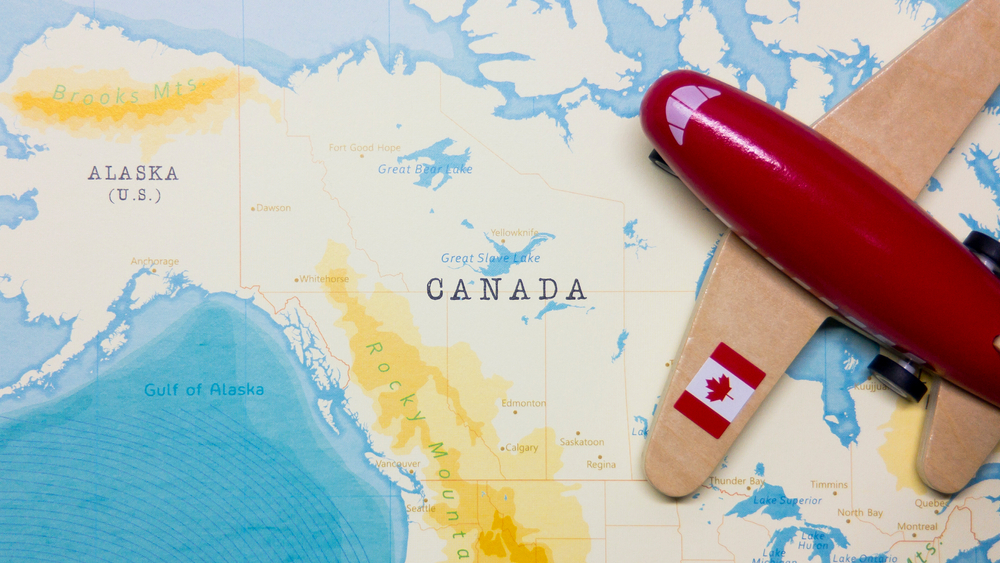Where Should Canadians Move? Top Countries for a Fresh Start

In recent years, a growing number of Canadians have been exploring opportunities to relocate abroad. Several factors contribute to this trend:
- High Taxes: Canada’s progressive tax system, while funding essential public services, can be burdensome for some individuals, especially high-income earners seeking more favorable tax environments.
- Cost of Living: Major Canadian cities like Toronto and Vancouver rank among the most expensive globally, with soaring housing prices and everyday expenses prompting residents to consider more affordable locales.
- Climate Considerations: Harsh winters and limited sunlight in many parts of Canada lead some to seek milder climates that offer year-round outdoor activities and improved well-being.
Statistical data underscores this movement. In 2024, emigration from Canada reached its highest level since 1967, with 106,134 individuals leaving the country. This marks a 3% increase from 2023 and reflects a significant shift in migration patterns .
Best Countries to Move to from Canada in 2025
When considering relocation, Canadians prioritize factors such as tax benefits, cost of living, climate, and quality of life. Here are five top destinations that align with these preferences:
Portugal: Top European Choice
Portugal has emerged as a favored destination for Canadians seeking a blend of affordability, pleasant climate, and rich cultural experiences. The country’s Golden Visa program offers residency opportunities, appealing to those looking to establish a foothold in Europe. Additionally, Portugal’s Non-Habitual Resident 2.0 tax regime provides significant tax incentives for new residents, making it an attractive option.
Dubai: Tax-Free Haven
Dubai offers a unique proposition with its tax-free income policy, modern infrastructure, and strategic location bridging East and West. The city has become a magnet for professionals and entrepreneurs seeking to maximize earnings while enjoying a cosmopolitan lifestyle. Dubai’s various visa options, including the Remote Work Visa, cater to a diverse expatriate population.
Mexico: Popular North American Option
Proximity to Canada, coupled with a lower cost of living and vibrant culture, makes Mexico a popular choice for Canadian expatriates. Cities like Mérida, Puerto Vallarta, and San Miguel de Allende offer established expat communities, affordable healthcare, and a warm climate. Mexico’s Temporary Resident Visa allows Canadians to reside in the country for extended periods, with pathways to permanent residency.
Singapore: Asian Financial Hub
Singapore stands out as a global financial center with a high standard of living, efficient public services, and a robust economy. The city-state’s strategic location in Southeast Asia provides access to emerging markets, making it appealing for business professionals. Singapore’s various employment and investment visa schemes facilitate the relocation process for qualified individuals.
Costa Rica: Tropical Paradise
Costa Rica attracts Canadians with its commitment to environmental sustainability, political stability, and relaxed lifestyle. The country’s Pensionado and Rentista visa programs are tailored for retirees and individuals with stable income sources, offering a straightforward path to residency. With its lush landscapes and welcoming communities, Costa Rica provides an ideal setting for those seeking tranquility and natural beauty.
Tax Considerations for Canadian Expats
When moving abroad, Canadian citizens must consider the tax implications of changing residency status. Understanding how income is taxed, which treaties apply, and how to manage assets back home can make a significant difference in long-term financial health.
Tax Treaties and Agreements
Canada has a robust network of tax treaties with over 90 countries, designed to prevent double taxation. These treaties often determine which country has the right to tax specific types of income, such as pensions, dividends, and capital gains, and provide clarity for expats who may earn income from multiple sources. For instance, if you’re earning rental income from property in Canada while living in Portugal, the tax treaty between the two nations dictates how that income will be treated. These agreements also include provisions on residency status and help define where a person is considered a tax resident based on factors like center of vital interests and days of presence.
Non-Resident Status Benefits
If you’re planning to live abroad permanently, you may be eligible to become a “non-resident for tax purposes” in Canada. This is a major shift in tax liability. Non-residents are only taxed on Canadian-sourced income (e.g., rental income, pensions), and not on global earnings. To qualify, you need to sever most residential ties, such as giving up your Canadian home, driver’s license, and healthcare coverage. For many Canadians, achieving non-resident status results in substantial tax savings, especially if their new country offers more favorable tax rates or exemptions. But note: the CRA may audit these cases to ensure non-residency claims are legitimate, so documentation and intent must be clear.
Offshore Tax Planning
With the right strategy, offshore tax planning can legally reduce your overall tax burden. This might include setting up international bank accounts, trusts, or investment structures in tax-efficient jurisdictions. Canadians relocating to Dubai or Singapore often leverage these tools to protect income and investments from heavy domestic taxation. That said, offshore planning must be done carefully. Improper setups or lack of transparency can lead to penalties under Canadian anti-avoidance rules or even run afoul of international agreements like the Common Reporting Standard (CRS), which mandates global information sharing between tax authorities.
TFSAs and RRSPs Management
Two of Canada’s most popular tax-advantaged accounts, Tax-Free Savings Accounts (TFSAs) and Registered Retirement Savings Plans (RRSPs), require thoughtful management during relocation. While RRSPs can be left intact after you become a non-resident (and even used for tax treaty benefits), TFSAs lose their tax-free status the moment you become a non-resident. Any gains inside the TFSAs after your departure may become taxable. It’s often wise to stop contributing once you leave, but not necessarily to withdraw funds immediately. Consulting a cross-border tax advisor is crucial to structure withdrawals and optimize tax implications in both countries.
Residency Options for Canadians Abroad
Relocating internationally doesn’t just involve buying a plane ticket. It also means securing the legal right to reside in another country. Fortunately, many popular destinations for Canadian expats offer straightforward, investment-based, or income-based residency pathways.
Golden Visa Programs
Golden Visa programs are investment-based residency routes that have become increasingly popular with Canadians seeking European or Mediterranean relocation options. Countries like Portugal and Greece offer these visas in exchange for property investment or capital deposits. For example, Portugal’s updated Golden Visa requires an investment in specific development zones or innovation funds. The main advantages? You don’t need to live there full-time, and after several years, you may apply for permanent residency or even citizenship. It’s an ideal route for those who want EU access without committing to immediate relocation.
Retirement Visas
For retirees, many countries offer simplified residency options based on proving stable income sources like pensions or retirement funds. Mexico, Costa Rica, Panama, and Portugal all have well-established retirement visas tailored to Canadians. These typically require proof of monthly income, usually between $1,500 to $3,000 CAD—and provide multi-year renewable permits. Some also offer fast-track permanent residency options for older applicants. Retirement visas tend to come with relaxed physical presence requirements, which means you can split time between your new home and Canada.
Digital Nomad Visas
As remote work continues to thrive, digital nomad visas have surged in popularity. These programs cater to location-independent professionals and freelancers who earn income from outside their host country. Countries like Spain, Portugal, Estonia, and Costa Rica now offer digital nomad visas that require proof of remote income, health insurance, and often a clean criminal record. These visas are a perfect solution for tech workers, creatives, and consultants who want to live abroad without changing employers. For Canadians used to flexible work setups, this visa class opens up exciting lifestyle possibilities.
Investment-Based Residency
Investment-based residency goes beyond Golden Visas, offering flexibility in structure. Whether it’s starting a business, buying government bonds, or placing funds in a local bank, there are multiple ways to qualify. The Dominican Republic, for example, allows you to gain residency with a $200,000 investment, not limited to real estate. Singapore and the UAE offer similar programs tailored to entrepreneurs and investors. These programs often come with tax incentives and business-friendly regulations, making them ideal for those looking to merge lifestyle with financial strategy.
Cost of Living Comparison
For Canadians seeking a fresh start abroad, cost of living is one of the most influential factors. Many top destinations offer better value without compromising on quality.
Housing Costs Analysis
In Portugal, especially in areas like Porto or the Algarve, property prices and rents are significantly lower than in major Canadian cities like Toronto or Vancouver. Similarly, Mexico offers affordable beachfront and urban housing options, with rents for a 1-bedroom apartment in cities like Mérida starting as low as $500 CAD. On the high-end, Singapore and Dubai are pricier, particularly in expat-favored districts, but the lack of personal income tax in these locations can offset housing costs. Costa Rica’s real estate market varies widely but remains affordable, particularly outside of tourist hotspots.
Healthcare Expenses
Canada’s public healthcare system is universal but comes with wait times. Abroad, expats often enjoy faster access to private healthcare at surprisingly low prices. Portugal offers quality public healthcare to residents, with optional private insurance plans for less than $100 CAD/month. In Mexico, private clinics are modern and affordable, and Costa Rica boasts one of the best healthcare systems in Latin America. Singapore’s healthcare is world-class and more expensive, while Dubai offers excellent care through a mandatory private insurance system for expats.
Daily Living Expenses
From groceries to public transport, many countries offer a lower cost of living than Canada. Portugal and Mexico, for instance, allow for comfortable day-to-day living at a fraction of Canadian prices. A meal at a mid-range restaurant might cost $12–$15 CAD in Lisbon or Playa del Carmen compared to $25–$30 in most Canadian cities. Utilities and transportation are also cheaper, helping expats stretch their budgets further.
Education Costs
Education is a key consideration for families. Countries like Portugal and Singapore offer excellent international schools, though tuition can be high, often ranging between $10,000–$25,000 CAD per year. Mexico and Costa Rica offer more budget-friendly international schooling options. Public education may be accessible depending on residency status, but most expats opt for international curricula taught in English or French.
Legal Requirements for Canadian Emigrants
While the dream of living abroad is exciting, Canadians must meet a series of legal requirements to settle in another country.
Visa Processing
Every destination has its own visa application process. For example, Portugal’s Golden Visa involves submitting biometric data, proof of investment, and clean criminal records. In Costa Rica, pension or rentista visas require income documentation. Processing times range from weeks to several months, so starting early is key. Many countries also require health insurance coverage and background checks before approval.
Documentation Needed
Common documents include a valid Canadian passport, proof of income or investment, health insurance policies, police clearance certificates, and sometimes medical reports. All documents typically need to be translated into the host country’s language and notarized. In many cases, you’ll also need an Apostille or embassy legalization for Canadian-issued papers.
Property Ownership Rules
Canadians are generally allowed to own property in countries like Mexico, Portugal, and Costa Rica, but some restrictions apply. For example, in Mexico, properties near the coast must be held in a bank trust (fideicomiso). In Singapore and Dubai, foreign ownership is often limited to designated zones or specific types of property, such as condos. It’s crucial to work with local legal experts when purchasing real estate abroad.
Healthcare Coverage
Maintaining access to healthcare is vital. Some countries offer access to public health systems for residents, while others mandate private insurance. Before your move, confirm whether Canadian provincial health coverage can be extended temporarily. Most expats will need to purchase international health insurance or register for a local plan upon arrival.
Banking and Financial Planning
Managing finances across borders is essential for Canadians starting a new life abroad. It requires careful planning to optimize currency, protect investments, and ensure retirement stability.
International Banking Options
Many Canadians open local bank accounts upon arrival, but maintaining a Canadian account is often wise. Some international banks like HSBC or Scotiabank offer global account access, making it easier to move funds between countries. For high-net-worth individuals, private banking and wealth management services abroad may also be attractive.
Currency Exchange Considerations
Foreign exchange rates can impact your budget significantly. Using platforms like Wise (formerly TransferWise) or OFX can help minimize transfer fees and maximize exchange value. If you’re receiving pensions or investment income in CAD, consider setting up automatic currency conversions to lock in favorable rates.
Investment Opportunities
Many Canadians explore real estate, startup, or stock market investments in their new country. For example, Portugal offers tax-efficient investment funds for Golden Visa applicants. Mexico and Costa Rica present real estate opportunities, while Singapore and Dubai are known for vibrant capital markets. However, ensure your portfolio is diversified globally and aligned with your new residency status.
Pension Transfer Options
Canadians moving abroad need to decide whether to draw their pensions from Canada or transfer them. While Old Age Security (OAS) and Canada Pension Plan (CPP) can often be collected abroad, private pensions and RRSPs withdrawals may be taxable depending on your tax residency. In some cases, QROPS or other pension transfer schemes may apply, especially if moving to the UK or other jurisdictions.
Lifestyle Benefits in Popular Destinations
Beyond financial and legal concerns, lifestyle improvements are often the biggest motivation for Canadians relocating abroad.
Climate Advantages
Leaving behind harsh Canadian winters is a common reason for relocation. Countries like Costa Rica, Mexico, and Portugal offer sunny weather year-round. Dubai and Singapore provide consistently warm climates, though the summer heat can be intense.
Quality of Life Improvements
Many expats find a slower pace of life, better work-life balance, and stronger sense of community abroad. Portugal’s laid-back lifestyle and safety, Mexico’s vibrant culture, and Costa Rica’s pura vida mindset appeal to those looking to improve overall well-being.
Healthcare Systems
As mentioned earlier, healthcare in many top destinations is affordable, accessible, and high-quality. Portugal, Singapore, and Costa Rica rank well globally for medical care, and private health insurance allows for personalized treatment with minimal wait times.
Social Integration
Integration into local communities varies. Canadians often find it easy to blend into expat communities in Portugal, Mexico, and Costa Rica. Language can be a barrier, but many countries offer English-speaking services and social groups, easing the transition. Cultural openness, friendly locals, and established expat hubs make social integration smoother in these popular destinations.
FAQ
1. What is the best country to move to from Canada for tax benefits?
Dubai is a leading choice thanks to its zero personal income tax and robust financial infrastructure. It’s ideal for business owners, remote workers, and high-net-worth individuals. Portugal and Costa Rica also provide attractive tax residency pathways, depending on your investment structure and duration of stay.
2. Can Canadians keep their healthcare coverage after moving abroad?
Most provincial healthcare plans end once you’ve lived outside Canada for over six months. Expats should secure private health insurance in their new country or through global providers. Some destinations offer access to public healthcare after obtaining residency, but eligibility varies.
3. Do I lose my Canadian citizenship if I move abroad or gain another residency?
No, you retain your Canadian citizenship even if you acquire permanent residency elsewhere. However, you should understand the rules around tax residency and ensure you’re meeting the filing obligations with the CRA to avoid surprises.
4. How much do I need to invest to get residency or a visa abroad?
This depends on the program. Portugal’s Golden Visa may require €280,000–€500,000. In Costa Rica, the rentista visa requires proof of $2,500 USD monthly income, while digital nomad visas may only need income verification. Each country has different thresholds and documentation needs.
5. Which countries are most family-friendly for Canadian expats?
Portugal, Singapore, and Costa Rica are standout options. They offer excellent education, safety, healthcare, and lifestyle benefits. With international schools, strong infrastructure, and welcoming expat communities, these countries make relocating with family much smoother.
Need Help?
Your goals deserve a strategy that matches your ambition. At Millionaire Migrant, we’ve spent decades helping individuals and families achieve freedom through tailored investment plans, strategic tax optimization, and second citizenship solutions. Our mission is simple: we help you create a life where you can live, work, and invest with no borders and minimal tax burdens. Ready to redefine your future?
Contact us today and discover how Millionaire Migrant can help you make it happen.


